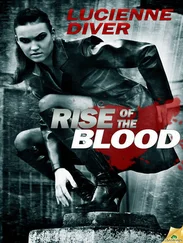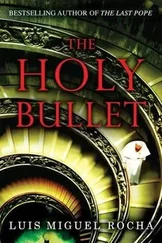Judith Rock - The Eloquence of Blood
Здесь есть возможность читать онлайн «Judith Rock - The Eloquence of Blood» весь текст электронной книги совершенно бесплатно (целиком полную версию без сокращений). В некоторых случаях можно слушать аудио, скачать через торрент в формате fb2 и присутствует краткое содержание. Жанр: Исторический детектив, на английском языке. Описание произведения, (предисловие) а так же отзывы посетителей доступны на портале библиотеки ЛибКат.
- Название:The Eloquence of Blood
- Автор:
- Жанр:
- Год:неизвестен
- ISBN:нет данных
- Рейтинг книги:5 / 5. Голосов: 1
-
Избранное:Добавить в избранное
- Отзывы:
-
Ваша оценка:
- 100
- 1
- 2
- 3
- 4
- 5
The Eloquence of Blood: краткое содержание, описание и аннотация
Предлагаем к чтению аннотацию, описание, краткое содержание или предисловие (зависит от того, что написал сам автор книги «The Eloquence of Blood»). Если вы не нашли необходимую информацию о книге — напишите в комментариях, мы постараемся отыскать её.
The Eloquence of Blood — читать онлайн бесплатно полную книгу (весь текст) целиком
Ниже представлен текст книги, разбитый по страницам. Система сохранения места последней прочитанной страницы, позволяет с удобством читать онлайн бесплатно книгу «The Eloquence of Blood», без необходимости каждый раз заново искать на чём Вы остановились. Поставьте закладку, и сможете в любой момент перейти на страницу, на которой закончили чтение.
Интервал:
Закладка:
“Paris doesn’t have a village goat,” Charles said mildly.
La Reynie turned and stared at him.
“Now that we’ve shocked each other, what are you going to do to find out who really killed Martine Mynette and Henri Brion so you can let Gilles go?”
“I wish I knew.”
“I see. Well, you won’t be glad to know that I have leave from Pere Le Picart to give you another problem to solve. Louis le Grand was attacked on Friday night.”
“What?”
“Yes, I thought perhaps you didn’t know. Which in itself is interesting. Three men broke several of our windows on the rue St. Jacques and scrawled the word murderers on our doors. Pere Le Picart assumed that the University was behind it, since they take any opportunity to stir up anti-Jesuit feeling. But he told me the next day that he talked privately with the University’s rector-”
“And made a few threats of his own, I imagine,” La Reynie said appreciatively. And added less appreciatively, “Instead of informing the police.”
“As you say. He now thinks that it was not the University’s doing. Some students returning from a tavern to a University house watched the fun and broke our door down, but it seems their presence was pure chance. I think the attackers were tavern drunks, maybe from the Place Maubert, where I first heard the song accusing us of conniving at Mademoiselle Mynette’s death. Though, when I caught one man and talked to him, he wasn’t very drunk. And he wasn’t afraid, even when I threatened him with the police. At least, he wasn’t as afraid as he should have been. He was just angry.”
“Perhaps he was only exceptionally stupid.”
“Perhaps. But news of the incident has been oddly slow to come to your ears. I imagine that the University rector has muzzled the students who saw it happen. But why wouldn’t the men involved trumpet their exploit all over the quartier? Their confreres certainly wouldn’t turn them in.”
“Perhaps they did trumpet it, just not to me. If the man you caught wasn’t just a tavern drunk, who do you think he was?”
“He was dressed like an ordinary workman and talked like one. But-” Charles threw up his hands. “I don’t know. I suppose I’m seeing enemies everywhere. Perhaps he was a plotting Jansenist. Or a Gallican.” Charles grinned wryly. “Or a Jansenist Gallican.”
“Or perhaps he was a Gallican Jansenist,” La Reynie said, straight-faced. Jansenists, anti-Jesuit followers of a Dutchman called Jansenius, often seemed more straightlaced than Protestants. Gallicans were politicians who wanted no papal meddling in French government and sometimes allied themselves with Jansenists, since Jansenists were critical of the papacy. “I think, however, that we can leave France’s political circles out of this, maitre,” La Reynie added.
“The hatred some people have for us frightens me, I admit. But, in spite of my fears, I have been given an order that directly affects you, Monsieur La Reynie.” Briefly, Charles explained what the rector had asked him to do.
La Reynie listened without comment. “Unfortunately,” he said, when Charles finished, “your rector is correct. I can use you. I have nothing like enough men to police Paris.” He eyed Charles. “And I do recall telling you once that if you tired of your Jesuit vocation, I could find a place for you.”
“You did.” Charles returned his look unwaveringly. “But as I told you then, I am Pere Le Picart’s man, not yours.”
La Reynie inclined his head with elaborate courtesy. “And I tell you now that if you break the law in the course of what you have been ordered to do, I will not protect you from the consequences. Entendu?”
“Understood.”
The air between them crackled again with challenge, as it had in the corridor.
La Reynie glanced at the black-and-gold clock standing on a table against the wall. “Two things before we go our ways. First, I will see that the night watch pays more attention to Louis le Grand. Second, I have learned that your song is probably printed more or less under your nose. One of the vendors told me-after a little persuasion-that a stack of copies appears before dawn every day on the porch of St. Julien le Pauvre. Who puts them there, he doesn’t know. Probably some street child, and never the same one twice. The child probably picks them up late at night from a Left Bank printer and leaves them on the church porch. I will have someone watch through the night, but all that will happen is that the child will see the watcher and the copies will turn up in some other place.” The lieutenant-general rose to his feet and settled his coat skirts.
Charles rose, too, ready to take his leave. Instead, before he knew he was going to say it, he asked, “Who is Reine?”
La Reynie busied himself with pulling his wrist lace to hang straight below the wide cuffs of his coat. “She is Renee’s mother, among many other things.”
“I wondered,” Charles said. “Green eyes like theirs are not common.”
“Sometimes Reine is a revendeuse. But she cannot walk as far now, and old clothes are heavy to carry.” Paris was full of revendeuses, women who sold secondhand clothes, the lucky ones in small shops, the others as street vendors. “Most of the time now, she simply begs.” The lieutenant-general picked up his stick and faced Charles, who was also on his feet. His eyes were as cold as black ice. “Hear me well. Never, for any reason-never, do you understand? — cause harm to Reine.”With a punctilious bow, and without another word, La Reynie walked out of the office.
Shaken, Charles found his way out into the cold air, which seemed a benison after the Chatelet’s grimness and La Reynie’s. The sky had cleared enough for the early sunset to splash streaks of orange down the western sky, and instead of taking the near way across the Pont au Change, Charles turned toward the sunset and set off along the Quay de la Megisserie, toward the Pont Neuf. The bells began to ring for Vespers. As a scholastic, he wasn’t yet required to say the daily office, but he knew most of it by heart and silently began the prayers.
“Oh, God, come to my assistance. Oh, Lord, make haste to help me..” Walking slowly, he reached the final “amen” with a deep sense of recovered peace, which shattered when he stepped on fresh, bloody cow guts and nearly slid into the Seine. Cawing laughter rang out behind him.
“Eh, Jean, did you see that? Praying and nearly drowned himself! Priests. Pah! Surprised they let the soft-wits out on their own.”
Butchers working till the last light, Charles thought resignedly. He was glad-for once-of the cold, since it kept down the smell of the blood and entrails not yet disposed of in the river. Leaving the butcher stalls behind, Charles hurried toward the clatter of the Samaritaine pump. Working day and night in its little Dutch pump house at the Right Bank end of the Pont Neuf, it drew fresh drinking water from the river for the city. The color was nearly faded from the sky, and the lantern hanging on the elaborately gabled pump house was already lit. As he turned onto the bridge, a swarm of begging children appeared from nowhere and surrounded him, their small hands fluttering like birds as they patted his cloak, feeling for pockets or purse. Stricken that he had nothing to give them, he showed his empty hands and signed a cross over them.
“Come to the college of Louis le Grand on Friday,” he said, pointing across the river. “We will give you food and clothes.”
Their hands dropped and they stared at him with old eyes. Today was only Monday. One of them picked up a clod of frozen street filth and flung it at him, barely missing his face, and the whole flock ran back the way they’d come. Charles called out to them and then wrenched his cloak loose from his shoulders and ran after them.
Читать дальшеИнтервал:
Закладка:
Похожие книги на «The Eloquence of Blood»
Представляем Вашему вниманию похожие книги на «The Eloquence of Blood» списком для выбора. Мы отобрали схожую по названию и смыслу литературу в надежде предоставить читателям больше вариантов отыскать новые, интересные, ещё непрочитанные произведения.
Обсуждение, отзывы о книге «The Eloquence of Blood» и просто собственные мнения читателей. Оставьте ваши комментарии, напишите, что Вы думаете о произведении, его смысле или главных героях. Укажите что конкретно понравилось, а что нет, и почему Вы так считаете.












